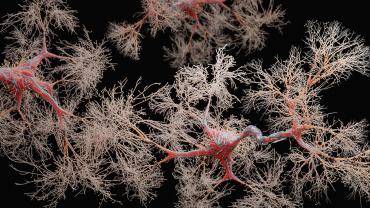
Methylation is a type of biochemical reaction that facilitates certain critical functions of the human body. DNA synthesis and repair, cellular energy metabolism, nerve cell structure and function, and red blood cell production are all dependent on methylation. Certain nutrients are associated with the regulation of biochemical pathways of methylation — specifically, vitamin B12 and folate.
Vitamin B12 is referred to as cobalamin for the presence of cobalt in its structure and it is found almost exclusively in animal foods, such as meat, fish, poultry, dairy, and eggs. Cobalamin is the only water-soluble vitamin stored in appreciable amounts in the body; thus, vitamin B12 deficiency may take years to present. Vitamin B12 is required for the enzymatic function of cytosolic methionine synthase (MS) and mitochondrial methylmalonyl-Coenzyme A mutase. MS catalyzes the transformation of homocysteine to methionine, which is necessary for the formation of S-adenosylmethionine (SAM). SAM is a universal methyl donor for almost 100 critical molecules in the human body including DNA, RNA, proteins, and lipids.
Folate, or vitamin B9, works synergistically with many reactions involving vitamin B12. It is essential for optimal function of every body system and it is critical to reactions in support of DNA health. Folate and vitamin B12 are also essential for the regulation of homocysteine levels, which play a role in cardiovascular health. Elevated homocysteine levels may also be a potential contributor to risk factors associated with mild cognitive impairment and neurodegenerative diseases.
A randomized research study explored the effects of daily supplementation with folic acid, vitamin B12, or a combination of the two on the prevention of cognitive decline in elderly individuals. The study lasted for 6 months and assessed serum biomarkers and neuropsychological assessments. Supplementation with folic acid alone or in combination with B12 was shown to significantly improve global cognitive function and memory and reduce certain inflammatory markers and circulating homocysteine levels. The combination of folic acid plus vitamin B12 was shown to be superior to folic acid alone in all outcomes.
In newer research, DNA methylation has been described as a potential mechanism of epigenetics. A recently published systematic review discussed the assessment of DNA methylation and neuroimaging to explore the potential impact of early life stress on neuronal development. Although the research in this sphere is still in its relatively nascent stage and definitive conclusions have yet to be made, exploring neuronal development and plasticity through this lens may shed light on how early life stressors may contribute to physiological changes later in life.
Methylation is a critical process within the human body. Certain macronutrients, such as folate and vitamin B12, may support the body’s ability to achieve healthy methylation and homocysteine levels. They also may support neurological health and healthy cognition and mood.
By Colleen Ambrose, ND, MAT